-
Your shopping cart is empty!
MENU
-
Womens Toys
- All Womens Toys
- Butt Plugs +
- Clit Pumps
- Clit Suckers & Clitoral Suction
- Clitoral Vibrators
- Dildos +
- All Dildos
- Alien Dildos
- Anal Dildos
- Anal Snake Dildos
- Black Dildos
- Chubby Dildo
- Dildos - Large 8 Inch to 9 Inch
- Dildos - Medium 6 Inch to 7 Inch
- Dildos - Monster 12 Inch to 20 Inch
- Dildos - Small 3 Inch to 5 Inch
- Double Ended Dildos
- Double Penetration Dildos
- Dragon Dildo
- Dual Density Dildos
- Fake Penis Packer
- Fantasy Dildos +
- Fisting Dildos / Hand Dildos +
- Glass Dildos
- Hollow Dildos
- Horse Dildos
- Inflatable Dildos
- Knot Dildo
- Lesbian Dildos
- Long Dildos
- Pegging Strapon's & Pegging Kits
- Realistic Dildos
- Rotating Dildos
- Soft Dildos
- Squirting Dildos +
- Strap Ons +
- Strapless Strap Ons
- Strapon Compatible Dildos
- Suction Cup Dildos
- Tentacle Dildo
- Thick Dildos
- Thrusting Dildos
- Uncut Dildos
- Vibrating Dildos
- Weird Dildos
- Egg Vibrators & Vibrating Eggs
- Finger Vibrators
- G-Spot Vibrators
- Kegel Balls
- Lingerie +
- Male Sex Dolls +
- Massagers & Wand Vibrators
- Nipple & Breast Toys +
- Pussy Pumps and Vagina Pumps
- Rabbit Vibrators
- Sex Machines
- Sex Toy Kits +
- Supplements, Creams & Sprays For Women +
- Vibrating Panties
- Vibrators +
- All Vibrators
- Anal Vibrators
- App Controlled Vibrators
- Bullet Vibrators
- Cheap Vibrators
- Classic Vibrators
- Clit Suckers & Clitoral Suction
- Clitoral Vibrators
- Couple's Vibrators
- Discreet Vibrators
- Egg Vibrators & Vibrating Eggs
- Finger Vibrators
- G-Spot Vibrators
- Lipstick Vibrators
- Massagers & Wand Vibrators
- Nipple Stimulators & Nipple Vibrators
- Rabbit Vibrators
- Realistic Vibrators
- Rose Vibrator Toy
- Small Vibrators
- Tongue Vibrators
- Vibrating Panties
- Yoni Eggs
-
Mens Toys
- All Mens Toys
- Anal Sex Imitators
- Automatic Strokers & Masturbators
- Blowjob Machine
- Butt Plugs +
- Chastity Cage
- Cock & Ball Rings
- Cock Rings +
- FleshJack & Gay Masturbators
- Nipple Clamps for Men
- Penis Extender +
- Penis Pumps +
- Penis Sleeve & Cock Sleaves +
- Pocket Pussy's & Fleshlights +
- Prostate Massager's & P-Spot Toys
- Sex Dolls +
- Sex Machines
- Sex Toy Kits +
- Supplements, Delay & Prolonging Sprays For Men +
- Tenga Eggs
- Urethral Sounding
-
Couples
- All Couples
- Bed Restraints & Bedroom Bondage
- Cock Rings +
- Couple's Vibrators
- Dildos +
- All Dildos
- Alien Dildos
- Anal Dildos
- Anal Snake Dildos
- Black Dildos
- Chubby Dildo
- Dildos - Large 8 Inch to 9 Inch
- Dildos - Medium 6 Inch to 7 Inch
- Dildos - Monster 12 Inch to 20 Inch
- Dildos - Small 3 Inch to 5 Inch
- Double Ended Dildos
- Double Penetration Dildos
- Dragon Dildo
- Dual Density Dildos
- Fake Penis Packer
- Fantasy Dildos +
- Fisting Dildos / Hand Dildos +
- Glass Dildos
- Hollow Dildos
- Horse Dildos
- Inflatable Dildos
- Knot Dildo
- Lesbian Dildos
- Long Dildos
- Pegging Strapon's & Pegging Kits
- Realistic Dildos
- Rotating Dildos
- Soft Dildos
- Squirting Dildos +
- Strap Ons +
- Strapless Strap Ons
- Strapon Compatible Dildos
- Suction Cup Dildos
- Tentacle Dildo
- Thick Dildos
- Thrusting Dildos
- Uncut Dildos
- Vibrating Dildos
- Weird Dildos
- Finger Vibrators
- Massage Lotions & Creams
- Massagers & Wand Vibrators
- Penis Sleeve & Cock Sleaves +
- Sex Furniture +
- Sex Games +
- Sex Machines
- Sex Swings +
- Sex Toy Kits +
- Sexy Handcuffs +
- Slapping Toys & Ticklers
- Strap Ons +
- Vibrating Panties
- Wax Play Candles
-
Vibrators
- All Vibrators
- Anal Vibrators
- App Controlled Vibrators
- Bullet Vibrators
- Cheap Vibrators
- Classic Vibrators
- Clit Suckers & Clitoral Suction
- Clitoral Vibrators
- Couple's Vibrators
- Discreet Vibrators
- Egg Vibrators & Vibrating Eggs
- Finger Vibrators
- G-Spot Vibrators
- Lipstick Vibrators
- Massagers & Wand Vibrators
- Nipple Stimulators & Nipple Vibrators
- Rabbit Vibrators
- Realistic Vibrators
- Rose Vibrator Toy
- Small Vibrators
- Tongue Vibrators
- Vibrating Panties
-
Dildos
- All Dildos
- Alien Dildos
- Anal Dildos
- Anal Snake Dildos
- Black Dildos
- Chubby Dildo
- Dildos - Large 8 Inch to 9 Inch
- Dildos - Medium 6 Inch to 7 Inch
- Dildos - Monster 12 Inch to 20 Inch
- Dildos - Small 3 Inch to 5 Inch
- Double Ended Dildos
- Double Penetration Dildos
- Dragon Dildo
- Dual Density Dildos
- Fake Penis Packer
- Fantasy Dildos +
- Fisting Dildos / Hand Dildos +
- Glass Dildos
- Hollow Dildos
- Horse Dildos
- Inflatable Dildos
- Knot Dildo
- Lesbian Dildos
- Long Dildos
- Pegging Strapon's & Pegging Kits
- Realistic Dildos
- Rotating Dildos
- Soft Dildos
- Squirting Dildos +
- Strap Ons +
- Strapless Strap Ons
- Strapon Compatible Dildos
- Suction Cup Dildos
- Tentacle Dildo
- Thick Dildos
- Thrusting Dildos
- Uncut Dildos
- Vibrating Dildos
- Weird Dildos
-
BDSM Toys
- All BDSM Toys
- Anal Hook
- Ball & Mouth Gags +
- BDSM & Sexual Restraints
- BDSM Collar & Leashes
- Bed Restraints & Bedroom Bondage
- Big Anal Toys +
- Bondage Kits
- Bondage Masks & Hoods
- Bondage Ropes & Tie Ups
- Chastity Cage
- Cock & Ball Rings
- Corset Tops & Bustiers
- Electro Sex Toys
- Nipple Clamps +
- Pain and Sensation Play
- Sex Furniture +
- Sex Swings +
- Sex Toy Kits +
- Sexy Handcuffs +
- Slapping Toys & Ticklers
- Spreader Bars
- Wartenburg Wheel
- Wax Play Candles
-
Anal Toys
- All Anal Toys
- Anal Beads
- Anal Dildos
- Anal Douches
- Anal Hook
- Anal Sex Lubricants +
- Anal Snake Dildos
- Anal Training Kits
- Anal Vibrators
- Big Anal Toys +
- Butt Plugs +
- Dildos - Monster 12 Inch to 20 Inch
- Dildos - Small 3 Inch to 5 Inch
- Finger Vibrators
- Fisting Dildos / Hand Dildos +
- Numbing & Desensitizing Lubricants
- Pegging Strapon's & Pegging Kits
- Prostate Massager's & P-Spot Toys
- Thick Dildos
-
Strap Ons
- All Strap Ons
- Double Ended Strapon's
- Hollow Strap On's & Male Strapon's
- Huge Strap On's
- Pegging Strapon's & Pegging Kits
- Squirting Strap Ons & Cum Strapon's
- Strap On Harnesses
- Strap On Harnesses - Plus Size
- Strapless Strap Ons
- Vibrating Strap Ons
- Guides +
-
Lingerie
- All Lingerie
- Bodysuits
- Bondage Lingerie
- Bras +
- Camisoles
- Corset Tops & Bustiers
- Crotchless Panties & Open Crotch Underwear
- Fishnet Bodysuit's & Body Stockings
- Lingerie Sets
- Open Cup Lingerie
- Panties
- Plus Size Lingerie
- Sexy Costumes +
- Sexy Dresses
- Sheer Bras
- Stockings
- Teddy Lingerie
- Wigs
-
Body Care
- All Body Care
- Batteries
- Cases, Boxes & Bags
- Condoms +
- Lube +
- All Lube
- Best Lube for Couples, Solo Players and Sex Toys
- Anal Sex Lubricants +
- Fake Cum Lube & Semen Lubricants
- Fisting Lube
- Flavoured Lubricants
- Hybrid Lubricants
- Numbing & Desensitizing Lubricants
- Oil Based Sex Lubricants
- Oral Sex Lube
- Organic & Natural Lubricants
- Silicone Lubricants
- SKYN
- Throat Numbing Spray
- Warming Sex Lubricants
- Water Based Lubricants
- Massage Lotions & Creams
- Renew Powder
- Supplements, Creams & Sprays For Women +
- Supplements, Delay & Prolonging Sprays For Men +
- Toy Cleaning & Care
- SPECIALS +
-
More
- All More
- Adult Novelties
- Bucks Party Decorations & Supplies
- Cases, Boxes & Bags
- Egg Sex Toys
- Hens Party Decorations & Supplies
- Sex Toy Kits +

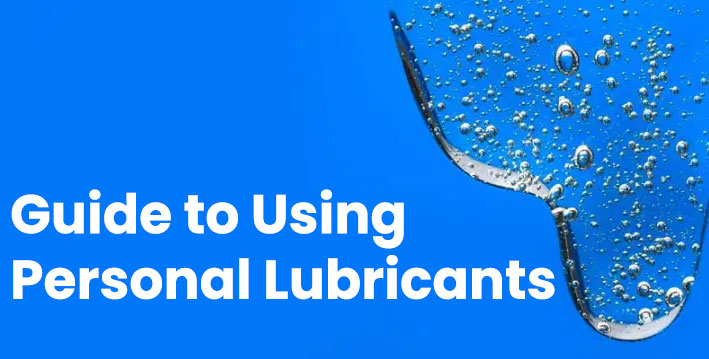

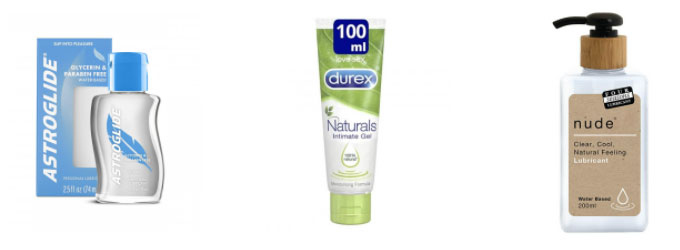
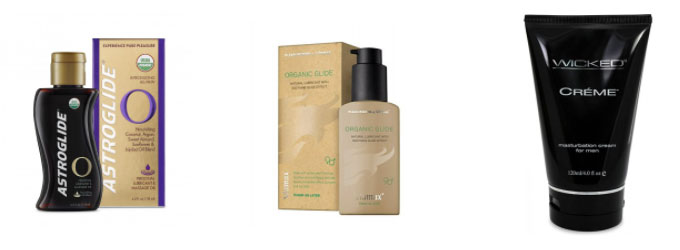

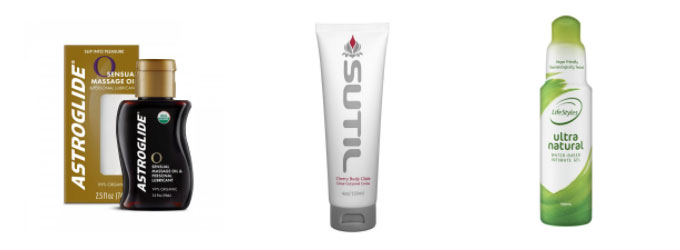
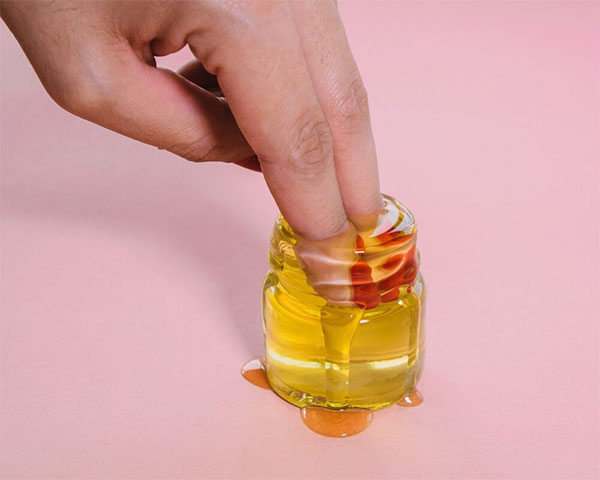
Leave a Comment